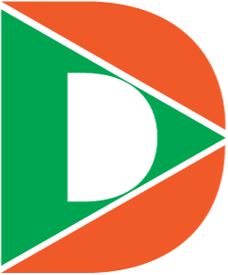New Trends in Assignment Writing and Guide for Stand Changes
In Over the past few years, the landscape of assignment writing has witnessed a significant evolution, shaping the methods and approaches students employ to tackle their tasks. The transformation from 2024 to 2025 in the realm of assignment writing.
-
Digital Collaboration Tools and services
Collaborative platforms are now essential as students interact on group assignments. Students are now also using writing services like CIPD Assignment Help UK. Real-time collaboration tools and services empower students to deal with assignments together, regardless of their actual area.
-
Writing Assistants Powered by AI
In academic writing, AI is not only an empty slogan but also revolutionary. Artificial intelligence-driven writing aids, such as Grammarly, assist students in fixing their grammar and style and are also instrumental. Using these tools, students will be able to enhance their writing by receiving personalized comments.
-
Citation Management Software
Programs like EndNote and Zotero make it easier to go through searches of many citation formats. By automating the citation process, these solutions guarantee correctness and help students save time.
-
Inclusive and Diverse Language
In 2024, inclusion and diversity will play a major role in academic writing. To make their writing readable to a wide audience, students now use language that acknowledges many points of view.
-
Interdisciplinary Approaches:
Academic fields are becoming increasingly intertwined. Pupils are urged to investigate interdisciplinary methods, incorporating knowledge from diverse domains, to enhance their tasks. The connection between knowledge and the modern world is reflected in this tendency.
How to Build Critical Thinking Capabilities for Writing Projects
Learning critical thinking techniques will enhance the quality of your assignment writing considerably, enabling you to form better, more persuasive arguments. These are some methods to sharpen your critical thinking skills and use them in what you do.
-
Pose Queries
One of the basic aspects of good critical thinking is the ability to ask insightful questions. Whenever researching and preparing your project, question the material you encounter. Do not fail to consider the credibility of your sources, the validity of their statements, and possible assumptions.
-
Examine and Assess the Evidence
Do not blindly accept things at face value. Ensure that the evidence from your sources is accurate, reliable, and acceptable by carefully analyzing it. Use CIPD Assignment Helpers for assignment help. Check the facts and determine whether they strengthen or weaken your position against opposing views.
-
Think about Various Viewpoints
To develop their critical thinking skills, one has to be open-minded. In conducting research and composing your tasks, try to consider various views and opinions. This will enable you to come up with a better understanding of the subject and its arguments.
-
Take part in active listening and reading
To improve your critical thinking skills, practice active reading and listening when working with course materials, lectures, and discussion points. Read a piece of paper, ask a question, and think deeply to become smarter on the subject and learn how it is possible for you as an individual. To make your assignments of a top-notch nature with the use of these methods, you will wish to articulate more convincing contentions that support thinking.
-
Find Logic Errors
Keep an eye out for logical errors in other people’s writing as well as in your own. You can create stronger and more convincing arguments in your assignments by being aware of and avoiding these typical reasoning mistakes.
-
Focus on Visual Components
In academic writing, the proverb “a picture is worth a thousand words” is accurate. Adding visual components to a message, like charts and infographics, improves its impact and power. Pupils now study how to explain hard concepts not just with words but also with eye-catching examples.
Keeping Away from Plagiarism in Academic Writing
By understanding what plagiarism is and following accepted procedures, you can guarantee that your work is morally great, unique, and appropriately referred to. Adhering to the rules is a portion of them.
-
Perceive the Components of Plagiarism
To introduce another person’s words, thoughts, or works that are not yours without finding their creators is a type of plagiarism. This should be possible by reusing work from past assignments, paraphrasing without giving legitimate affirmation of the genuine source, or, in any event, reordering content. Guarantee that you know the different kinds of plagiarism and how to stay away from them.
-
Detailed and well-organized notes.
So, whenever you are doing your assignment research, put the findings together and take clear notes. Identify where each bit of information came from and mention whether it is a quote or summary. This will enable you to avoid plagiarism when using this material for your homework.
-
Citation judiciously and suitably
Although quotations can offer compelling proof and assistance for your claims, it’s crucial to employ them sparingly. Only quote when the original language is very significant or powerful, and always include the correct citation. Don’t overuse quotes because they can take away from your original reasoning and insight.
-
Employ Tools for Detecting Plagiarism
Take a stab at using a plagiarism recognition program like Grammarly or Turnitin before turning in your work. Moreover, with the help of these devices, you can detect unintentional plagiarism and ensure your work is accurate.
-
Examine and Edit Your Work
Before submitting, give your task a thorough reading and revision. Verify again that your summaries and paraphrases are correct and original, and that you have properly cited all of your sources.
You may steer clear of plagiarism and make sure that your projects are unique, morally sound, and appropriately cited by adhering to these principles and using the best things for academic writing.

As a DIGITALTECHSIDE author, the majority of our articles have been focused on technology, blogging, business, lifestyle, social media, web design and development, e-commerce, money, health, education, entertainment, SEO, travel, and sports.
Contact us at digitaltechside@gmail.com if you have questions of anything.




